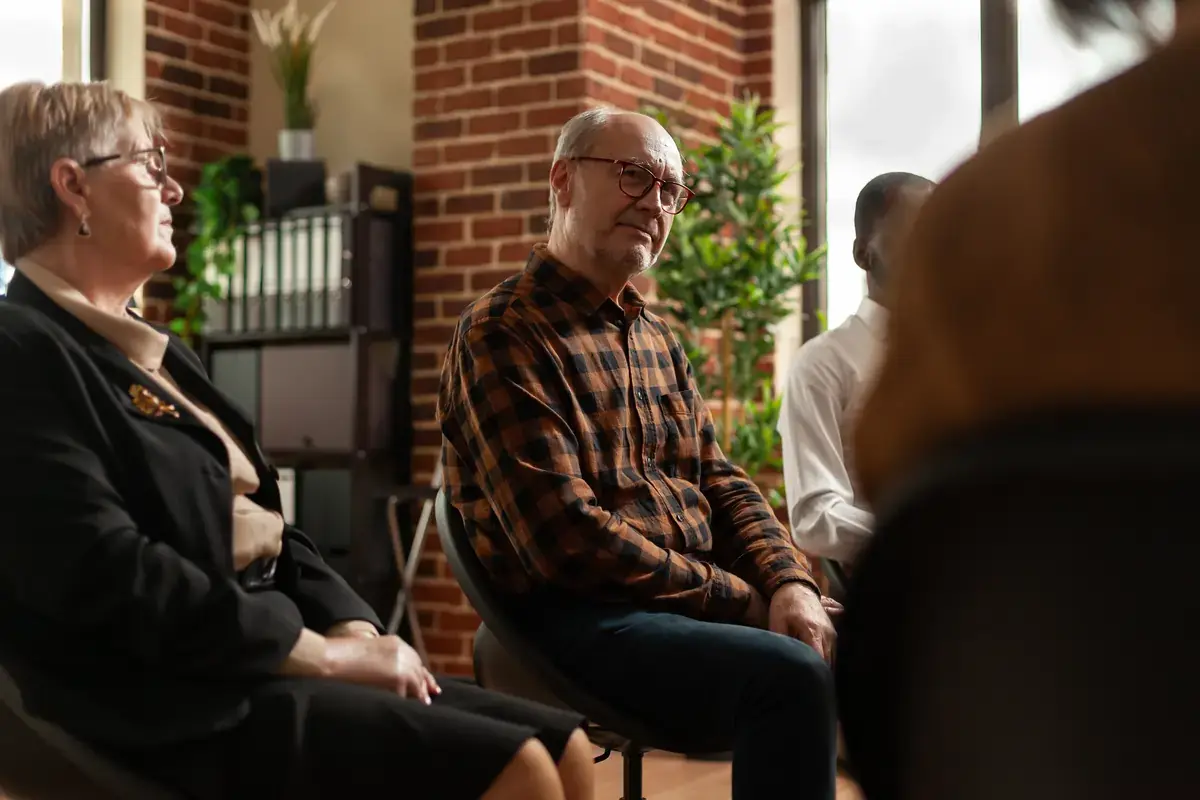How to Express Romantic Love: Effective and Heartfelt Gestures
All the world celebrates romantic love, and people from all walks of life look for ordinary moments and extraordinary ones to express love to their...
3 min read
![]() Williamsburg Therapy Group
:
Jul 18, 2023 11:39:37 AM
Williamsburg Therapy Group
:
Jul 18, 2023 11:39:37 AM

Various techniques are employed in group therapy, depending on the type of group and the specific needs of its members. Some common approaches include role-playing, experiential activities, and group discussions.
These techniques aim to facilitate open communication, shared experiences, and mutual support among members while promoting personal growth and self-awareness.
Using different techniques in group therapy can also help individuals develop socializing skills. By providing and receiving constructive feedback from their peers, group members can improve their social interactions beyond the group setting.
Through participating in group therapy activities, individuals can practice new behaviors, communication techniques, and learn to better understand and manage their emotions.
Skip to a section:
Challenges and Limitations of Group Therapy
Tips for Maximizing Group Therapy Experience
Finding the Right Group Therapy for You
Find Group Therapy in Austin: Williamsburg Therapy Group
Role-playing is a powerful technique used in group therapy that allows members to practice new behaviors and communication skills in a safe environment. By simulating various scenarios, members can analyze and comprehend contrasting perspectives and behaviors, as well as gain insight into the views of others.
However, it’s essential to consider the emotional toll of role-playing and ensure that all participants feel comfortable and supported throughout the process.
Experiential activities, such as journaling or art therapy, encourage self-expression and personal growth in group therapy. These hands-on activities allow individuals to explore their thoughts and emotions in a creative and engaging way, fostering self-awareness and personal development.
By participating in experiential activities, group members can gain a deeper understanding of their emotional landscape and develop healthy coping strategies for managing their mental health.
Group discussions are a vital component of group therapy, facilitating open communication, shared experiences, and mutual support among members.
These discussions enable members to express their experiences and emotions in a secure and supportive atmosphere, fostering trust and connection between group members.
By engaging in group discussions, individuals can gain a more comprehensive understanding of a topic and enhance their long-term retention. The various types of group discussions include support groups, skills development groups, and cognitive behavioral groups, each with their own unique benefits and goals.
The benefits of group therapy are numerous, making it an effective option for many individuals seeking support and personal growth. By participating in group therapy, members can experience:
Moreover, group therapy provides an opportunity to:
The therapeutic alliance formed within group therapy can serve as a powerful catalyst for personal growth and healing, making it a valuable option for many individuals navigating the complexities of mental health.
While group therapy offers numerous benefits, it is essential to consider its potential challenges and limitations. Some individuals may experience social anxiety or find it difficult to share personal information in a group setting.
For these individuals, individual therapy might be a more suitable option - at least to start with. Additionally, negative group dynamics can sometimes arise, posing challenges for both group members and therapists.
It is crucial for both therapists and group members to be aware of these potential challenges and work together to address them. Therapists can offer support and guidance to help individuals overcome their hesitations and foster a safe and nurturing environment for all members.
By understanding and addressing these challenges, group therapy can continue to provide valuable support and personal growth opportunities for its participants.
To make the most of your group therapy experience, consider the following tips:
Another essential aspect of maximizing your group therapy experience is being open to learning from others. This openness facilitates gaining insight into your own experiences and emotions, as well as those of other members, fostering a sense of community and support.
By actively participating in group therapy and embracing the opportunity to learn from others, you can achieve more profound personal growth and healing.
Finding the right group therapy involves considering various factors such as cost, insurance coverage, and your personal goals. Group therapy is typically more affordable than individual therapy, making it an attractive option for many individuals.
Trying different groups can also help you find the best fit for your specific needs. Each group therapy session may have a unique focus, atmosphere, and group dynamic
By exploring various groups, you can identify the one that resonates with you the most and offers the support and growth opportunities you seek. With the right group therapy, you can embark on an incredible journey of personal growth, healing, and connection.
If you’re interested in trying group therapy in Austin, our team of doctoral-level group therapists is ready to help.
From modern dating to interpersonal process groups, you’re sure to find a session that’s right for you.

All the world celebrates romantic love, and people from all walks of life look for ordinary moments and extraordinary ones to express love to their...

What is relationship burnout or relationship fatigue? Many of us have heard of burnout, but we often connect it to professional life and the problems...

In today's digital age, so many of us are locked into our mobile devices each and every day, which can have a negative impact on our mental...